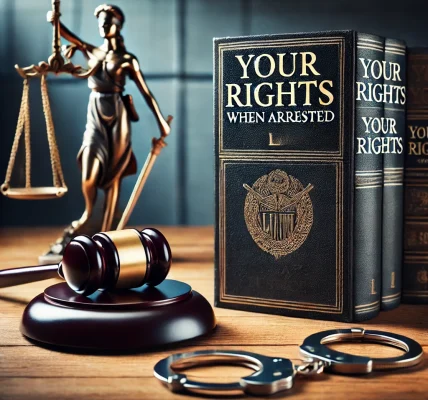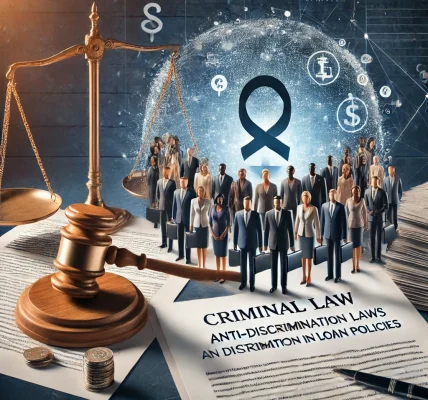Having a criminal record can have long-lasting consequences on employment, housing, and other aspects of life. Expungement provides individuals with the opportunity to clear their records and move forward without the burden of past convictions. This guide explains the process of expunging a criminal record, eligibility requirements, and legal steps involved.
1. Understanding Expungement
Expungement is a legal process that allows a person to have their criminal record erased or sealed from public access. This means that once a record is expunged, it is not accessible to employers, landlords, or the general public. However, certain government agencies, such as law enforcement, may still have access to the records in specific situations.
A. Difference Between Expungement and Record Sealing
- Expungement: Completely erases the criminal record as if it never existed.
- Record Sealing: Hides the record from public view but does not erase it; certain agencies may still access it.
2. Eligibility for Expungement
Not all criminal offenses qualify for expungement. The eligibility criteria vary by jurisdiction, but common factors include:
- The type of offense (misdemeanor vs. felony).
- Whether the person completed their sentence, probation, or parole.
- The amount of time that has passed since the conviction.
- Whether the individual has committed additional offenses.
- Whether the case was dismissed or resulted in an acquittal.
A. Common Crimes That May Be Expunged
- Minor drug offenses.
- Non-violent misdemeanors.
- Certain juvenile offenses.
- Arrests that did not lead to a conviction.
B. Crimes That Typically Cannot Be Expunged
- Violent felonies.
- Sex offenses.
- Crimes involving child abuse.
- Repeat offenses.
3. Step-by-Step Guide to Expungement
A. Step 1: Obtain Your Criminal Record
Before filing for expungement, you need to obtain a copy of your criminal record from the court or law enforcement agency. This helps you determine what charges are eligible for expungement.
B. Step 2: Review Your State’s Expungement Laws
Each state has different rules regarding expungement. You can check your state’s laws by visiting the official court website or consulting with an attorney.
C. Step 3: Prepare and File the Petition
- Complete the expungement petition form, which may require information such as:
- Case number.
- Date of conviction or dismissal.
- Details of the offense.
- Attach any required documents, such as proof of sentence completion or character references.
- Submit the petition to the appropriate court along with the filing fee.
D. Step 4: Attend the Expungement Hearing (If Required)
Some cases require a court hearing, where the judge will review your petition and determine whether to grant the expungement. You may need to explain why you deserve to have your record expunged and show proof of rehabilitation.
E. Step 5: Receive the Court Decision
If the judge approves your request, you will receive an order stating that your record is expunged. If denied, you may have the option to appeal or reapply after meeting additional requirements.
F. Step 6: Notify Agencies and Update Records
Once the expungement is granted, you must notify relevant agencies, including law enforcement and background check companies, to ensure your record is removed from their databases.
4. Benefits of Expungement
A. Improved Employment Opportunities
- Employers often conduct background checks before hiring. Expungement allows individuals to apply for jobs without worrying about past records.
B. Better Housing and Loan Approvals
- Many landlords and financial institutions check criminal records before approving housing applications and loans.
C. Restoration of Rights
- In some cases, expungement can help restore rights such as voting or firearm ownership.
D. Peace of Mind and Reputation Improvement
- Expungement allows individuals to move forward in life without the stigma of a criminal record.
5. Challenges in the Expungement Process
- Lengthy and Complex Process: Some states have strict requirements, making expungement time-consuming.
- Legal Fees: Hiring an attorney can be costly, although some individuals choose to file on their own.
- Court Discretion: Even if eligibility criteria are met, judges have the final say in granting expungement.
6. Alternatives to Expungement
If expungement is not an option, consider other legal alternatives:
- Pardons: A government pardon does not erase a record but forgives the offense.
- Certificate of Rehabilitation: Some states offer certificates that improve employment opportunities without expunging the record.
- Record Sealing: If expungement is not available, sealing the record may still help prevent public access.
7. Seeking Legal Assistance
While it is possible to file for expungement without an attorney, legal guidance can improve the chances of success. Many non-profits and legal aid organizations offer free or low-cost assistance for expungement cases.
Conclusion
Expungement is a valuable legal tool that allows individuals to clear their past mistakes and move forward with a clean slate. By understanding the legal procedures, eligibility criteria, and necessary steps, individuals can take proactive steps toward improving their future opportunities. If you have a criminal record and want to explore expungement, consulting with a legal professional can provide the best guidance based on your specific situation.




